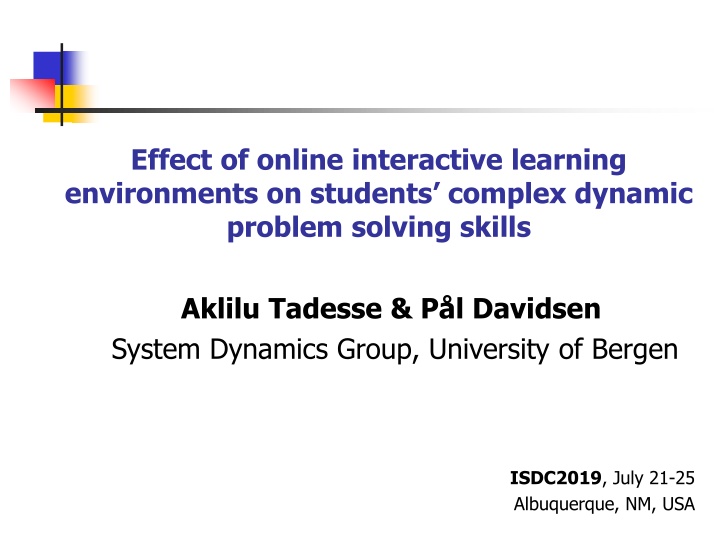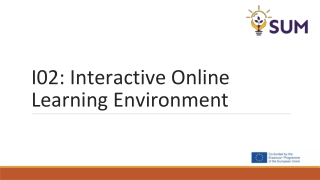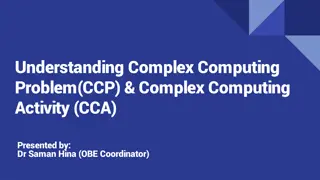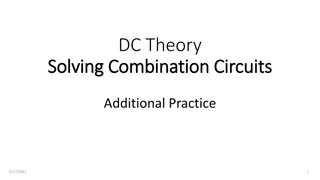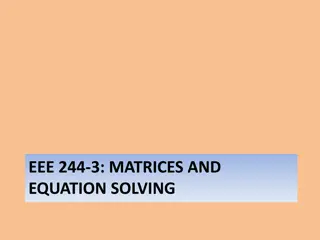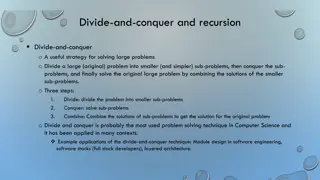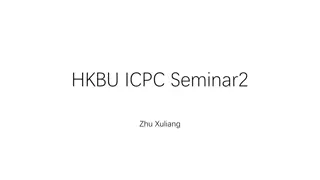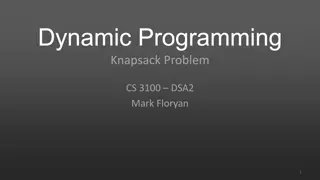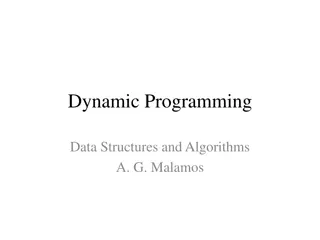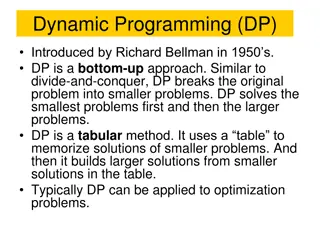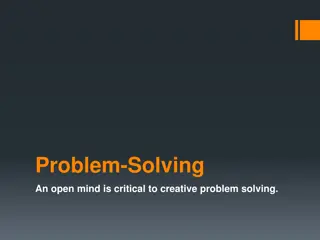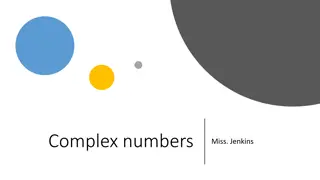Enhancing Complex Dynamic Problem-Solving Skills Through Online Interactive Learning Environments
Explore the impact of online interactive learning environments on students' ability to solve complex dynamic problems, illustrated through the case study of Mr. Wang's bicycle repair shop in Shanghai. Discover the challenges faced by learners in understanding and managing complex systems, and how the innovative OILE model helps learners progress through tasks, receive personalized support, and track their learning journey effectively.
Download Presentation

Please find below an Image/Link to download the presentation.
The content on the website is provided AS IS for your information and personal use only. It may not be sold, licensed, or shared on other websites without obtaining consent from the author.If you encounter any issues during the download, it is possible that the publisher has removed the file from their server.
You are allowed to download the files provided on this website for personal or commercial use, subject to the condition that they are used lawfully. All files are the property of their respective owners.
The content on the website is provided AS IS for your information and personal use only. It may not be sold, licensed, or shared on other websites without obtaining consent from the author.
E N D
Presentation Transcript
Effect of online interactive learning environments on students complex dynamic problem solving skills Aklilu Tadesse & P l Davidsen System Dynamics Group, University of Bergen ISDC2019, July 21-25 Albuquerque, NM, USA
Presentation highlight Context Mr. Wang case study Why OILE? The Mr. Wang OILE Results Discussion Conclusion
Context: Mr. Wang Case Study Mr. Wang is a reputable bicycle repair shop in Shanghai established by Mr. Wang s great grandfather in 1912. It delivers your bike in top shape after one day. Shanghai is a dynamic city with lots of events and bicycle rental is booming there. After each event, Mr. Wang experiences lots of bicycles coming in and oscillations (major disturbances) in the business
Mr. Wangs Problem ? ? ? ? ? ? In the short run, the company is not able to tackle the increase in demand very well. In the very long run, there are signs that indicate it works to the satisfaction of Mr. Wang, - stabilizing the Backlog and the Service Time
Why OILE? Numerous studies document that people have difficulties comprehending Complex Dynamic Systems (CDS) and managing these systems effectively The difficulty in understanding arises from lack of: Cognitive capability to comprehend structural complexity Skills to infer dynamic behavior of a system from its underlying structures. Effectiveness of methods, techniques and tools that are available to analyze systems
The Mr. Wang OILE An asynchronous, personalized and adaptive OILE with the following characteristics: It presents a complex, dynamic problem that learners should address in its entirety. It then allows learners to progress through a sequence of learning tasks from easy to complex After completion of each learning task, the OILE provides learners with supportive information based on their individual performance. The support fades away as learners gain expertise. The OILE tracks and collects information on learners progress and generates learning analytics.
The OILE Sample welcome page
The OILE: Templet for item description Navigation Buttons Task and item number Stimulus material (Feed-up) Multiple Choice Alternatives Question
The OILE: Templet for Feedback Navigation Buttons Feedback: gives the reason why the student s response is not correct and supports the student to re-correct its response Feed-forward: gives the right reason why the student s answer is correct and why the other alternatives are not
Results: learning path unique 1. Does scaffolding help students perform better in subsequent tasks? Problem identification Model Building 1 Model Building 2
Results: Expt Vs Control group 2. Will exp tal group students have significantly higher gains in their problem solving than students in a comparable control group? Independent sample t-test results from two studies: Study 1 &2 Study 1 Number of Students Mean SD df T Sig. (2-tailed) Effect Size (Cohen's d) Experimental 33 8.95 1.58 58 3.21 0.002 0.8 Control 27 7.17 2.68 Study 2 Number of Students Mean SD df t Sig. (2-tailed) Effect Size (Cohen's d) Experimental 24 8.60 2.12 49 2.10 0.040 0.59 Control 27 7.17 2.68
Discussion: Feedback from the OILE To teachers/mentors - Information about: Performance of the students How the students have utilized the material The amount of time the students have spent on the tasks and feedback they received Content that needs more or less discussion during class time Content that needs to be presented differently next time
Discussion: Feedback from the OILE To students information about: Their own performance/ progress How to learn from their mistakes - chance to redo tasks or branch to less difficult questions) The right reason why their answers were correct
Conclusion In light of the supportive evidence, we conclude that the use of personalized and adaptive OILE to support learning about CDS is promising
Thank Thank You You! ! Questions? Questions? Contact: Aklilu Tadesse Email: aklilutt@gmail.com Aklilu.Tadesse@uib.no
